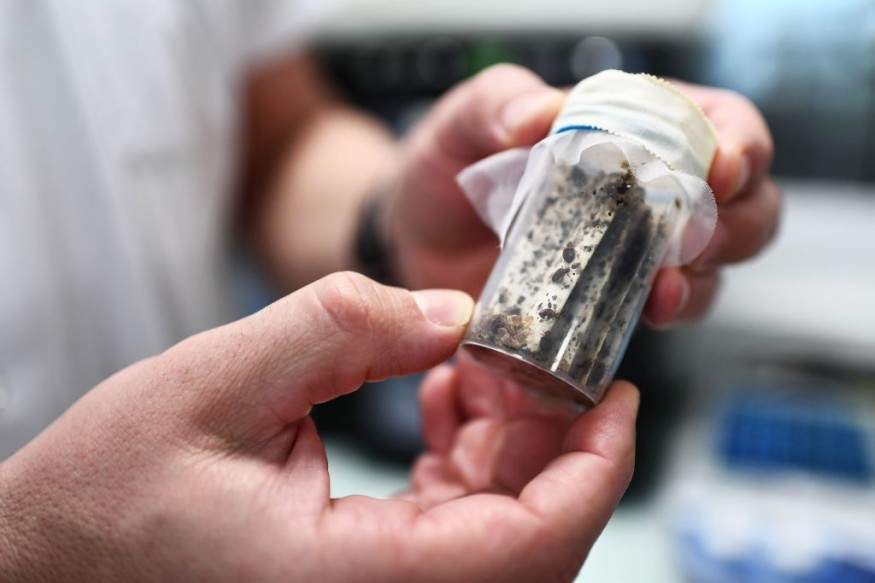
According to a recent study, bed bugs may be able to acquire and spread the staph infection methicillin-resistant Staphylococcus aureus (MRSA).
Staph Infection and Bed Bugs
MRSA is a kind of bacteria that lives on people's skin and can lead to life-threatening illnesses. According to the Centers for Disease Control and Prevention (CDC), it may occasionally result in sepsis or even death.
According to Jose E. Pietri, Ph.D., an author of the study and Sanford School of Medicine assistant professor at the University of South Dakota, their findings offer the first experimental evidence in favor of the theory that, in some circumstances, bed bugs may help spread MRSA.
According to medical professionals, MRSA can result in staph infections, which are difficult to treat because of their resistance to various drugs.
Experts say that staph infections frequently spread in medical establishments like hospitals and nursing homes as well as in educational institutions and public places.
Blood Feeding Experiment
The team of researchers from the University of South Dakota carried out three experiments with sterile blood that was encircled by a collagen membrane that had been infected with MRSA at a quantity that is commonly found on human skin.
The bed bugs were permitted to "blood feed" through these infected membranes by the researchers. Then, according to the journal post describing the study, scientists measured the amount of live MRSA present both internally and externally on the bed bugs throughout seven days.
MRSA persisted on the outside of the bed bugs in two of the three studies for up to three days after exposure.
In one of the trials, internal replication of the bacteria was seen for up to seven days.
The scientists checked to determine if bed bugs might spread MRSA while feasting on blood seven days later.
As observed in two of the trials, the bacteria reached the membrane that was uncontaminated.
According to Pietri, the findings do not demonstrate that bed bugs are important natural carriers of MRSA. Ultimately, further clinical and epidemiological research explicitly exploring the connection between MRSA infections and bed bugs is required.
Numerous infectious disease specialists stated that although the data is intriguing, more research is necessary to conclusively link bed bugs to MRSA epidemics.
Dr. Bruce Hirsch, an infectious diseases attending physician in New York, was not involved in the research.
Instead of utilizing humans, the study was conducted using artificial feeders. Although extremely infrequent, there have been prior links between bed bug exposure and MRSA breakouts.
Prevention
Hirsch claims that MRSA is quite prevalent because, even though it can cause really serious illnesses, it typically just colonizes individuals without causing any harm.
According to him, Staph is frequently found on the skin, the front of the nose, and in the surroundings on linens, clothing, and close items.
According to the expert, there are steps people can take to prevent MRSA infections. He advises making efforts to maintain a healthy lifestyle.
Hirsch emphasized the significance of maintaining cleanliness while cautioning against over-cleanliness, which can dry up the skin and increase susceptibility to infections.
He cautioned diabetics to maintain tight control of their blood sugar to lower the chance of infection because Staph has a sweet tooth.
Hirsch claims that maintaining a clean and fresh immediate environment also lessens the load of bed bugs.
This is an experimental study, according to Dr. Aaron Glatt, the director of infectious diseases. It only lends credence to the idea that MRSA could be spread from person to person via bed bugs. This is not actually occurring in people, according to the study.
However, bed bugs can be an annoyance in and of themselves, so it is preferable to prevent infestations as much as possible, Glatt continued. There is little evidence to suggest that this is a major way of MRSA transmission in humans, FOX News reports.
The findings by Pietri's group were recently published in the Journal of Infectious Diseases.
Related Article : Invasive Cattle Screwworm Fly Outbreak in Panama Border Halts Transport of Infested Livestock
© 2025 NatureWorldNews.com All rights reserved. Do not reproduce without permission.





